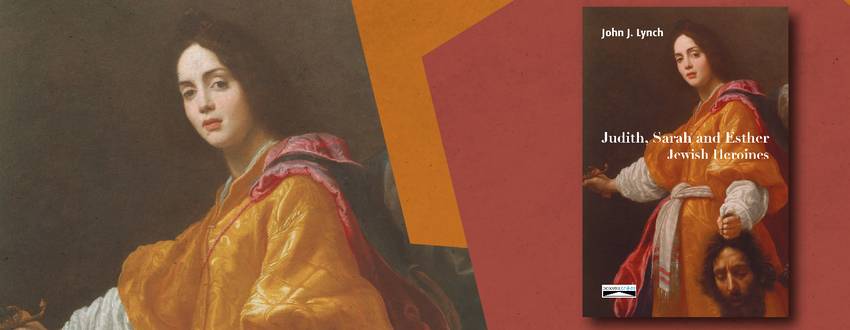News
Discover the book “Judith, Sarah and Esther Jewish Heroines” written by John J. Lynch

6 october 2023
“Judith, Sarah and Esther”, methodology and approaches.
In this article, a “literary-theological” approach to the texts of the book is used, specifically to the characterization of the figures of the main characters : Judith, Sarah and Esther. This approach combinates some the methods that were developed by the American biblical scholar, named Phyllis Trible, the “Biblical Rhetorical Criticism” and the other one which is called "Theological Criticism of the Interpretation of the Bible".
Historical Critical Methods are important but is not enough
There role are indispensable
Historical critical methods are very important and play and indispensable part in the field biblical studies, but also in the interpretation of the Bible. And it is sure that they will continue to play this role in the future.
And these methods were very important in all the researches that were made to wrote the book, but it seems like they were not enough. In fact, the fruit of the research, forces interpreters to reach beyond its methods.
Interpreters needed to go further
In fact, the issue of that biblical critics, highlighted a wide consensus. The books were not historical records or even fictionalized versions of historical events. Indeed, they are most likely Hellenistic Jewish novels. That is to say they are works of the theological fiction, that was the problem; the texts might be able to reflect exactly the period in which they were written.
Those texts, were written more to be read, appreciated and pondered than to convey historical information. The messages they vehiculate, were more about the relationship between the God of Israel and the people of Israël than about historical events.
That’s why, literary and theological methods, are best suited for their interpretation, of course, in addition to Historical Critical Methods.
Another approach : Biblical Rhetorical Criticism
Biblical text : texts that are only intended to be read
The study highlighted in this article; the Deuterocanonical figures of Judith Sarah and Esther, brings to light the conviction that the biblical texts studied here, are really texts that are intended to only be read. In fact, they are only read to discover what they say and how they say it, there is no interaction with the reader.
Rhetorical Criticism, a more literary approach
Rhetorical Criticism can be defined as a careful reading of the text, with quite attention to rhetorical and literary details. So, this method, applies the strategy of other hermeneutical methods such as Narrative Criticism, in the way to understand how the text communicates with the reader.
This method has become a well-established methodology within contemporary scholarship. Although, some feminist writers such as Phyllis Trible, which was the pioneer in the use of this method. Other interpreters of various ideological backgrounds have completely turned to it.
Rhetorical Criticism and female characters
John Bauckham made a study about women of the Gospels and demonstrated the validity of Rhetorical Criticism for the study of female characters of the Bible. Also, Judith McKinlay, made a recent essay of the use of Literary and Rhetorical Criticism for the study of biblical women further documents, how diversity of perspectives can rightly use this methodology.
Phyllis Trible and feminism criticism : the one who inspired
Who is Phyllis Trible ?
Phyllis Trible (1932) is a biblical scholar active at numerous academic institutions, she pioneered the field of rhetorical criticism. Also, her development of Rhetorical Criticism and studies of biblical women, remain influential in the field of biblical studies.
The work of Trible
She describes her methodology as the practical embodiment of a series of suggestions made by James Muilenburg, in his presidential address to the Society of Biblical Literature. As she agreed with Muilenburg’s insights, she recognized that his address was missing a complete practical program for implementation.
So, she dedicated her work to this task, publishing several books leading up to her volume named “Rhetorical Criticism” published in 1994. In this work, she offered to all her readers, what was she termed “practical instruction” and also her guidelines for beginning.
Trible’s guidelines
Trible expounded her methodology as a series of “Practical instructions”. Ten steps are articulated in her book “Rhetorical Criticism” remain her primary contribution to the study of Biblical Literature. To illustrate her methodology she applied, her “practical instructions” to the book of Jonah. And she also used this methodology to textual studies of biblical narratives about women in “Texts of Terror” and “God and the Rhetoric of Sexuality”. These volumes are really considered groundbreaking works in the field.
If you want to know more about Phyllis Trible and her contributions, you can read the whole book of John J. Lynch "Judith, Sarah, & Esther. Jewish Heroines": here.
